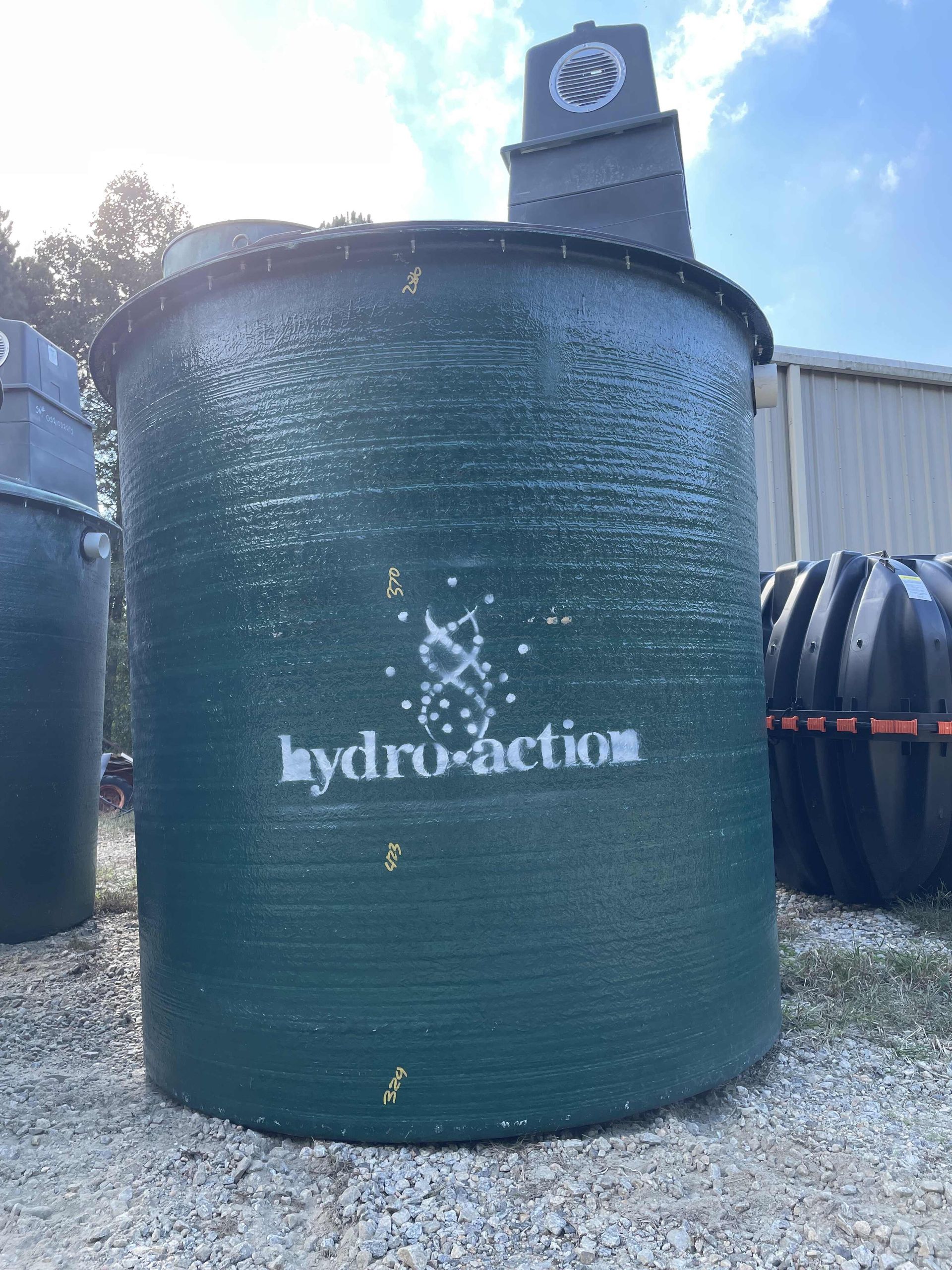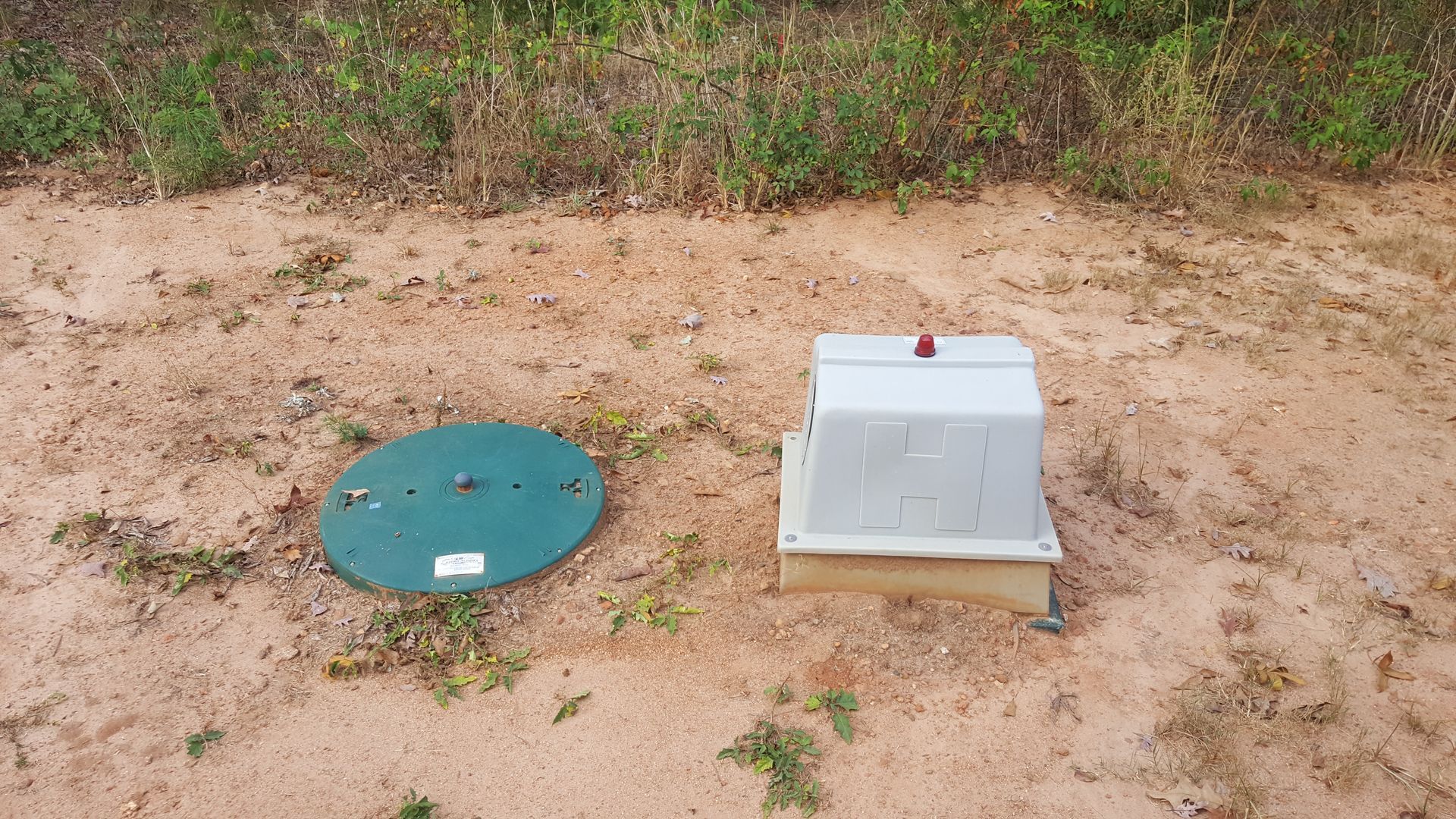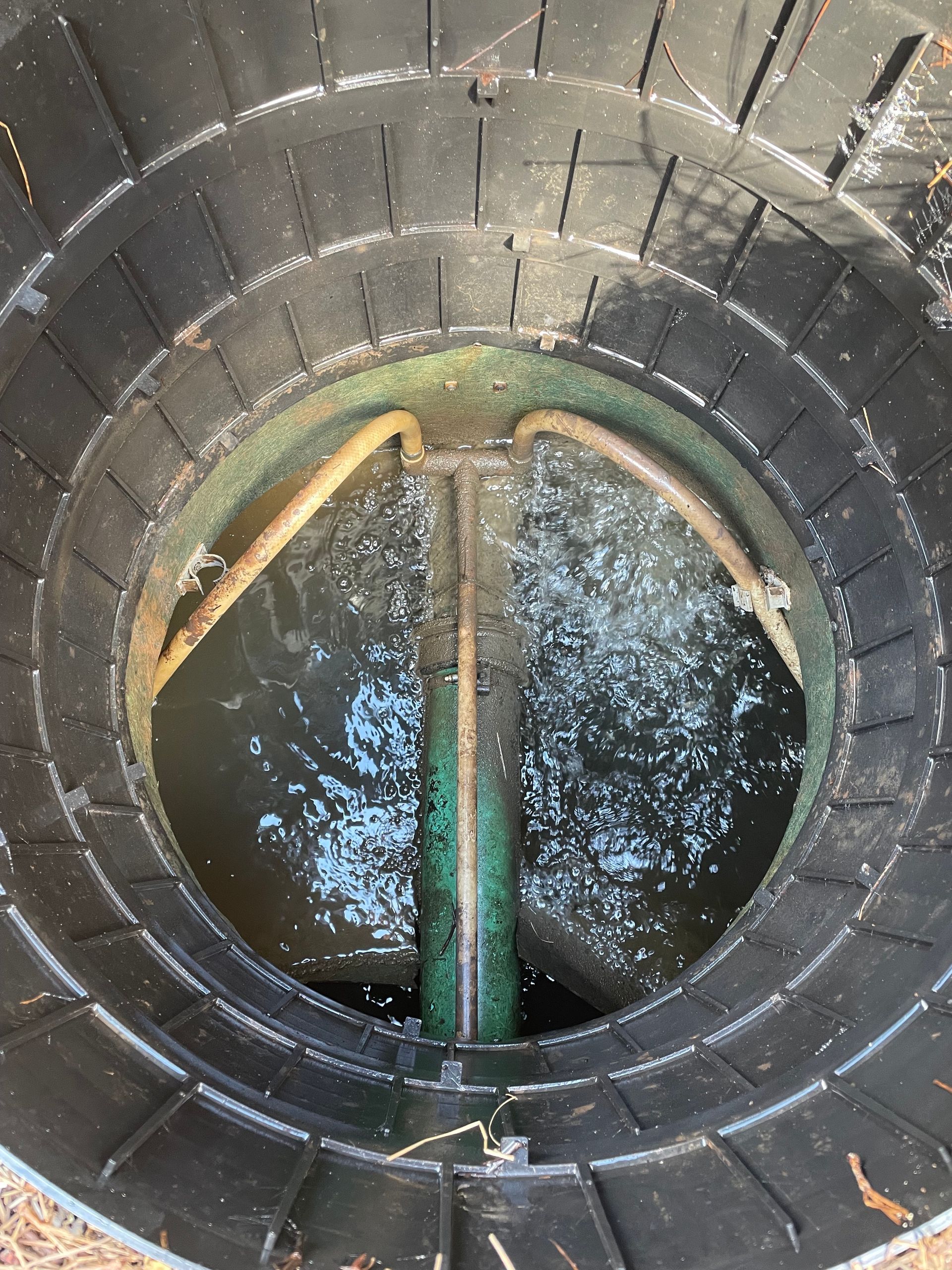Get in touch
404-788-3474
asmseptic@gmail.com
Email Us on: asmseptic@gmail.com
Call or Text: 404-788-3474
Blog
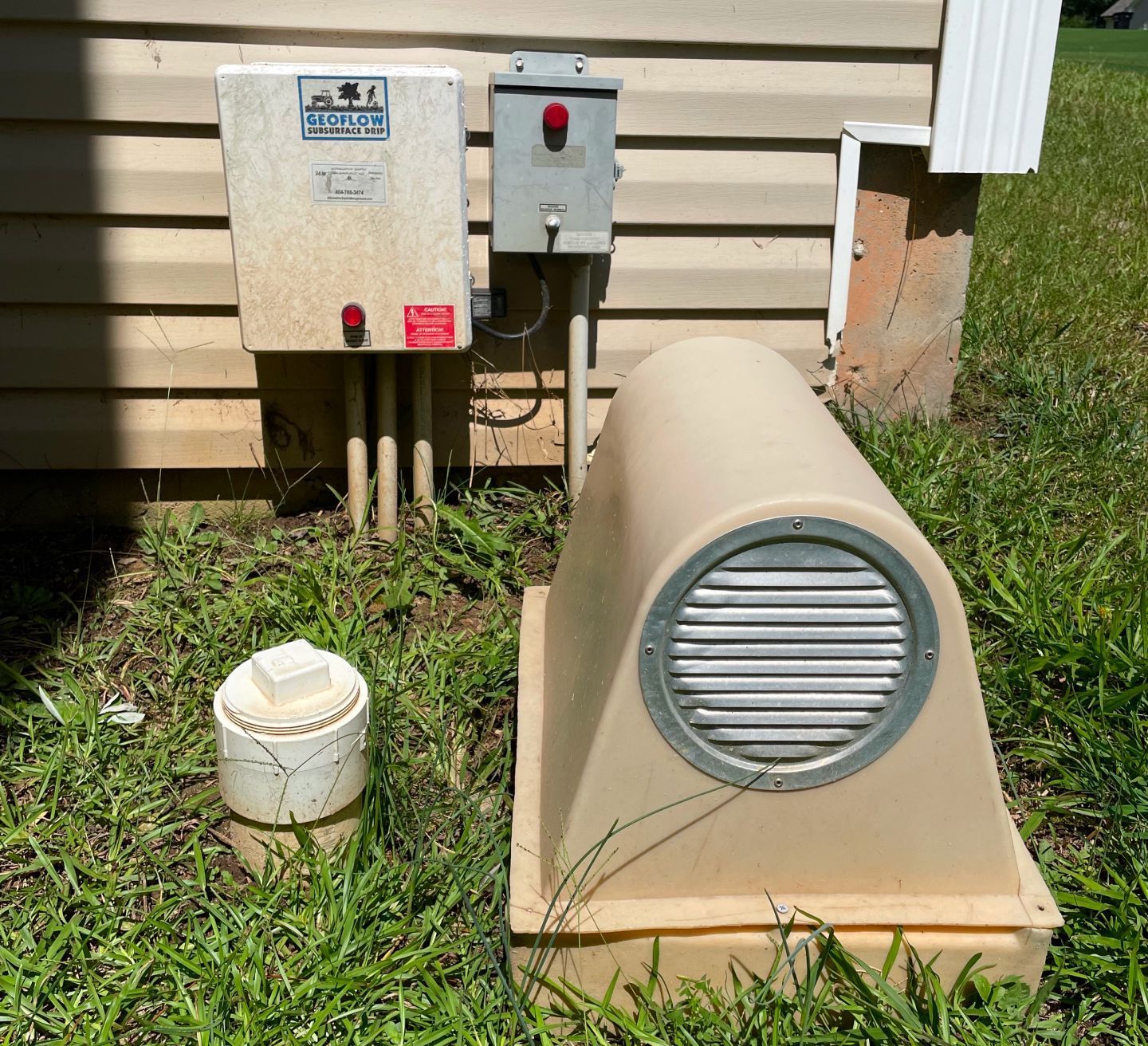
April 9, 2025
At Alternative Septic Management, we work with homeowners across Georgia to ensure their aerobic treatment systems run efficiently and last as long as possible. One of the most critical components in this effort is the septic tank aerator. This small but powerful device plays a major role in improving treatment effectiveness and system durability. Understanding how aerators function and how to maintain them is essential to maximizing the performance and lifespan of your septic system. How Septic Tank Aerators Work What Is a Septic Tank Aerator? A septic tank aerator is a mechanical device used in aerobic treatment units (ATUs) to introduce oxygen into the wastewater. Unlike conventional septic systems that rely on anaerobic (oxygen-free) conditions to break down waste, aerobic systems promote the growth of beneficial bacteria that thrive in oxygen-rich environments. These bacteria are more efficient at decomposing waste, leading to cleaner effluent and a more robust overall system. Aerators are typically installed inside or near the treatment tank. They operate by drawing in outside air and pumping it into the tank, either through diffusers or directly into the wastewater. Aeration vs. Anaerobic Treatment Traditional septic systems use anaerobic digestion, where bacteria break down waste slowly in the absence of oxygen. This process produces sludge and often results in foul odors. Aerobic systems, on the other hand, use oxygen to support faster-acting aerobic bacteria. These systems produce less sludge, generate fewer odors, and result in higher-quality effluent. The aerator is the key to creating and maintaining the aerobic environment required for this advanced treatment. Benefits of Aeration in Septic Systems Enhanced Waste Breakdown By continuously supplying oxygen, septic tank aerators stimulate the growth of aerobic microbes that digest waste more efficiently than anaerobic organisms. This leads to a faster breakdown of solids and reduces the risk of clogs and buildup. Improved Effluent Quality Aerated systems treat wastewater more thoroughly before it is discharged into the drain field or secondary treatment area. This results in effluent with lower levels of nitrogen, pathogens, and other harmful substances, making it safer for the environment and compliant with stricter wastewater standards. Odor Control Aerobic treatment units produce significantly less odor than traditional systems. The presence of oxygen supports cleaner bacterial processes and prevents the development of hydrogen sulfide gas, which causes the typical septic smell. Reduced Need for Pump-Outs Because waste breaks down more completely in an aerobic environment, solids accumulate more slowly in the tank. This can extend the interval between professional pump-outs, saving homeowners time and money. Environmental Protection Cleaner effluent reduces the risk of groundwater contamination and minimizes the environmental impact of household wastewater. In regions like Georgia, where soil and water quality vary, properly functioning aerated systems provide an added layer of environmental safety. Prolonging Septic System Life With Aerators Less System Stress Efficient waste treatment reduces the burden on other components of the system, such as pumps and filters. This helps prevent premature wear and tear and lowers the chances of system failure. Better Drain Field Performance Aerated effluent is cleaner and contains fewer solids, which reduces the likelihood of clogging in the drain field. This keeps the soil absorption area functioning longer and prevents the need for expensive replacement. Cost Savings Over Time Though aerobic treatment systems may have higher initial installation costs, the long-term savings from fewer repairs, reduced pump-outs, and extended system life can be significant. Aerators are a smart investment for sustainable, cost-effective septic performance. Aerator Maintenance Tips for Homeowners Routine Inspections We recommend checking your aerator monthly to ensure it's operating correctly. Listen for the motor running and verify airflow at the diffuser or tank opening. If the unit is silent or the airflow is weak, it may require maintenance or replacement. Cleaning and Replacing Filters Most aerators include air intake filters that trap dust and debris. These filters should be cleaned every few months and replaced as needed. Dirty filters can restrict airflow, reducing the efficiency of the aerator. Electrical Component Care Aerators rely on a consistent power supply to function. Check electrical connections, breakers, and timers periodically. Installing a surge protector is also a good idea to protect the motor during power fluctuations. Professional Maintenance Recommendations While homeowners can perform some basic maintenance tasks, we encourage scheduling professional inspections at least once a year. Our technicians at Alternative Septic Management inspect electrical components, clean filters, test airflow, and evaluate overall system health. Selecting the Right Aerator for Your System Matching Aerator Capacity to System Size It's essential to use an aerator that matches the size and treatment capacity of your aerobic system. Undersized aerators may not supply enough oxygen, while oversized models could lead to unnecessary wear. We help homeowners select and install aerators appropriate for their specific systems. We work with a range of reliable aerator brands that are known for durability and energy efficiency. Our team evaluates models based on tank size, noise levels, airflow rate, and maintenance requirements to find the best fit for your property. Installation Best Practices Proper installation is key to aerator performance. This includes correct placement, secure housing to prevent water intrusion, and adequate ventilation. At Alternative Septic Management, we ensure every aerator we install meets industry standards and local codes. How We Support Aerated Septic Systems Installation and Upgrade Services Whether you're building a new home or upgrading an existing system, we provide expert installation of aerobic treatment units and aerators. Our installations are designed for long-term reliability and ease of maintenance. Scheduled Maintenance Plans To help you stay on top of system upkeep, we offer scheduled maintenance plans that include aerator checks, cleaning, and full system inspections. Routine care helps extend equipment life and prevent costly repairs. Expert Troubleshooting and Repairs If your aerator stops working or your system shows signs of trouble, our team is ready to help. We diagnose the issue quickly and provide professional repairs or replacement to restore your system's performance. We’re proud to help homeowners across Georgia maintain efficient, environmentally responsible septic systems. If you want to extend the life of your system and enjoy the benefits of advanced wastewater treatment, contact Alternative Septic Management on the website or call/text 404-788-3474 for expert support with septic tank aerators and more.
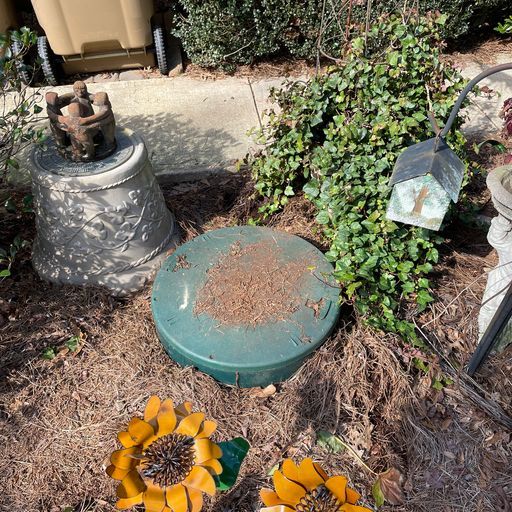
March 27, 2025
At Alternative Septic Management, we understand that choosing the right septic system for your property in Georgia involves more than just picking a model. One of the most critical factors in determining system performance is soil composition. Different soil types impact drainage, wastewater treatment, and overall system efficiency. Understanding how soil affects your septic system can help ensure long-term functionality and compliance with environmental regulations. The Connection Between Soil and Septic System Efficiency Soil plays a crucial role in wastewater treatment by filtering contaminants and allowing effluent to percolate properly. Both traditional septic systems and aerobic treatment units (ATUs) rely on soil conditions to function correctly. In Georgia, soil types vary widely, affecting how well a septic system can process and disperse wastewater. Proper soil assessment is essential for selecting the best system for your property. Common Soil Types in Georgia and Their Impact on Septic Performance Clay-Rich Soils: Challenges and Solutions Clay-heavy soils, common in parts of Georgia, present significant challenges for septic systems. These soils have poor drainage and low permeability, which can cause wastewater to back up and create oversaturated drain fields. To address these issues, ATUs are often a better choice than traditional septic systems. ATUs introduce oxygen into the treatment process, promoting bacterial activity that helps break down waste more efficiently. Additionally, designing a larger drain field or incorporating alternative drain field materials can improve wastewater absorption in clay-rich areas. Sandy Soils: Rapid Drainage Concerns Sandy soils, found in coastal and southern regions of Georgia, drain quickly. While this may seem beneficial, it poses risks of groundwater contamination since wastewater may pass through too rapidly for proper treatment. To counteract this, incorporating additional filtration methods, such as sand filters or advanced ATU technology, can enhance effluent quality. These systems ensure that contaminants are removed before reaching the groundwater, making them a safer option for sandy soil environments. Loamy Soils: The Ideal Balance Loamy soils, composed of a mix of sand, silt, and clay, provide the best natural conditions for septic systems. These soils offer excellent drainage while retaining enough moisture to facilitate effective wastewater treatment. Both traditional septic systems and ATUs can perform efficiently for homeowners with loamy soil. Regular maintenance and soil health monitoring help sustain optimal performance. Optimizing Septic Systems for Different Soil Conditions Site Evaluation and Soil Testing Before installing a septic system, conducting a professional soil test is essential. This evaluation determines soil permeability, absorption capacity, and overall suitability for a septic system. At Alternative Septic Management, we conduct thorough site assessments to recommend the best wastewater treatment solution tailored to your property’s soil conditions. Choosing the Right Septic System for Your Soil Type Selecting the appropriate system depends on soil composition and property layout. Conventional septic systems work well in loamy soil but may struggle in clay-heavy or sandy environments. ATUs provide a more versatile solution, offering efficient wastewater treatment in a variety of soil conditions. Our team specializes in designing systems that maximize performance based on your soil type. Drain Field Adjustments to Enhance Performance Drain field modifications can improve wastewater absorption and treatment efficiency. In areas with poor drainage, options such as raised bed systems, chambered drain fields, or engineered soil amendments can enhance percolation and prevent oversaturation. For properties with fast-draining soil, incorporating additional filtration layers ensures proper wastewater treatment before reaching groundwater sources. The Role of Soil in ATU Efficiency Aerobic Bacteria and Soil Permeability Aerobic treatment units rely on oxygen to support bacterial activity, breaking down waste more effectively than traditional anaerobic systems. Soil permeability plays a significant role in maintaining these bacteria. Dense, compacted soils may limit oxygen flow, reducing bacterial efficiency. Ensuring proper aeration and periodic system maintenance helps sustain bacterial activity for optimal treatment results. Preventing Soil Saturation and System Failure Oversaturated soil conditions can lead to septic system failure, causing backups and environmental contamination. Homeowners should watch for warning signs such as slow drainage, pooling water near the drain field, or strong odors. Regular inspections and preventive maintenance, including adjusting water usage and improving drainage solutions, help maintain system performance. Why Work With Alternative Septic Management for Soil-Compatible Septic Solutions At Alternative Septic Management, we specialize in tailoring septic solutions to Georgia’s diverse soil conditions. Our expertise ensures that homeowners receive systems optimized for efficiency, environmental sustainability, and regulatory compliance. Our team provides comprehensive services, including: Professional soil assessments to determine the best system for your property Expert installation of ATUs and advanced septic solutions suited to challenging soil conditions Routine maintenance and troubleshooting to keep your system operating efficiently Understanding your property’s soil composition is key to selecting the right septic system. Whether you need a new installation or maintenance for an existing system, we are here to help. Contact Alternative Septic Management at 404-788-3474 (call or text) or visit their website today to schedule a consultation and ensure your hydro-action and aerobic septic system is performing for long-term success.
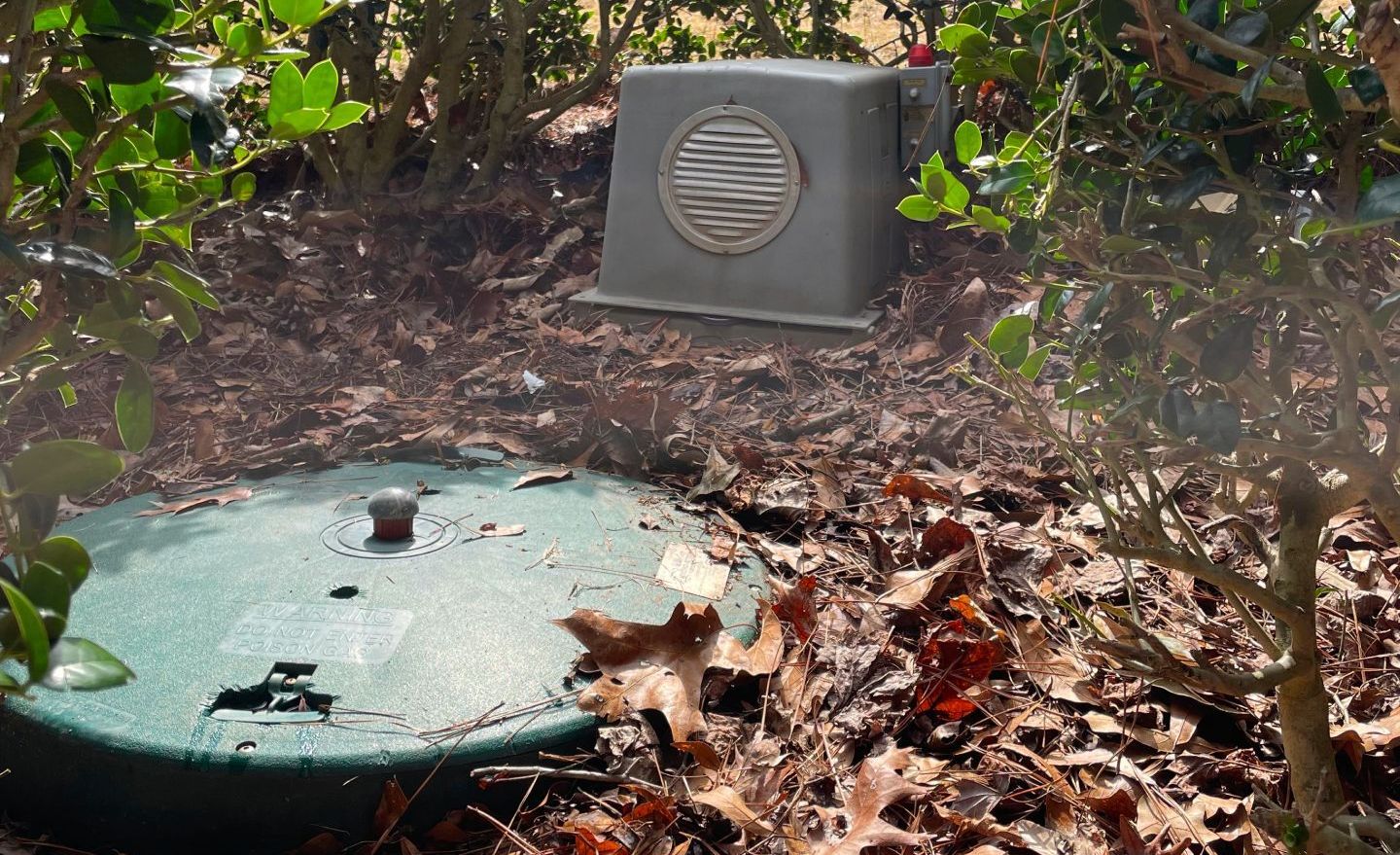
March 13, 2025
Even with regular maintenance, aerobic treatment units can face seasonal challenges, particularly during Georgia’s warm and humid months. Understanding common ATU issues and taking proactive steps can help homeowners prevent costly repairs and maintain system efficiency. Alternative Septic Management provides expert services to help homeowners identify and resolve these seasonal issues, ensuring their ATU operates effectively year-round. Preparing Your ATU for Spring Spring is a time of renewal, making it the perfect season to inspect and maintain your ATU. Warmer temperatures and increased water flow from seasonal rains can affect system performance, so early preparation is crucial. Inspecting and Cleaning Key Components Routine inspections help identify potential issues before they become major problems. Homeowners should check the following ATU components: Aeration system: Ensure the air pump is functioning correctly and delivering adequate oxygen to support bacterial activity. Diffusers: Clean or replace diffusers if clogged to maintain efficient aeration. Filters: Inspect and replace filters as needed to prevent blockages that could hinder water flow. Electrical components: Verify that alarms and control panels are operating properly to avoid unexpected failures. Addressing Increased Water Usage in Spring Spring showers and household activities such as lawn watering can contribute to excess water in the system. To prevent overload, follow these guidelines: Direct rainwater runoff away from the drain field to avoid oversaturation. Stagger laundry and dishwasher use to minimize sudden spikes in wastewater. Monitor effluent levels and inspect for signs of pooling water around the drain field. Summer ATU Maintenance Best Practices As summer brings hotter temperatures, your ATU requires adjustments to maintain optimal efficiency. Increased bacterial activity, evaporation, and landscaping practices all play a role in system performance. Managing High Temperatures and Increased Bacterial Activity Hot weather accelerates bacterial growth in an ATU, which can improve waste breakdown but may also lead to imbalances if not managed correctly. Consider the following: Ensure the aerator is functioning properly to provide adequate oxygen for bacteria. Avoid excessive chemical use, including bleach and harsh cleaners, which can disrupt bacterial activity. Monitor effluent quality to detect any signs of poor waste breakdown or unusual odors. Landscaping Considerations Around Your ATU Proper landscaping helps maintain system integrity and prevents root intrusion into key components. Best practices include: Keeping grass trimmed around the ATU to ensure easy access for inspections and maintenance. Avoiding the planting of deep-rooted trees or shrubs near drain lines, as roots can infiltrate and damage pipes. Preventing heavy vehicles or equipment from driving over the drain field, which could compact the soil and hinder wastewater absorption. Common Seasonal ATU Issues and How To Prevent Them Even with regular maintenance, aerobic treatment units can face seasonal challenges, particularly during Georgia’s warm and humid months. Understanding common ATU issues and taking proactive steps can help homeowners prevent costly repairs and maintain system efficiency. Preventing Odor Issues in Spring and Summer A well-functioning ATU should not produce strong odors. If unpleasant smells arise, it may indicate an imbalance in bacterial activity or insufficient aeration. To prevent and resolve odor problems: Ensure the aeration system is delivering adequate oxygen to support bacterial breakdown. Limit the use of antibacterial soaps, bleach, and harsh household chemicals that can disrupt beneficial bacteria. Regularly inspect and clean air diffusers to maintain optimal aeration levels. Schedule professional ATU maintenance if odors persist, as this may indicate a deeper issue requiring expert attention. Identifying and Resolving Drainage Problems Slow drainage, standing water, or overly saturated drain fields are signs that your ATU may be experiencing blockages or system overload. Homeowners can take the following steps to prevent drainage issues: Inspect and clean effluent filters regularly to prevent clogs. Check for pooling water near the drain field, which could indicate oversaturation or poor absorption. Avoid excessive water use in short periods, such as running multiple appliances simultaneously. If slow drainage or backups persist, contact a professional ATU service provider, such as Alternative Septic Management to diagnose and resolve the issue before it leads to system failure. Proactively addressing these common ATU issues ensures your system functions efficiently throughout Georgia’s warmer months. Regular inspections and seasonal adjustments can help prevent costly repairs and extend the life of your aerobic treatment unit. How Alternative Septic Management Supports Georgia Homeowners Alternative septic management offers a reliable solution for Georgia homeowners facing challenges with traditional systems, such as clay-heavy soil and increasing population density. These advanced systems enhance wastewater treatment, ensuring compliance with state regulations while protecting local ecosystems. By choosing alternative septic solutions like aerobic treatment units, homeowners can improve effluent quality, reduce environmental impact, and lower long-term maintenance costs. These systems outperform conventional septic tanks in challenging environments, offering greater efficiency and sustainability. Investing in alternative septic management helps prevent system failures, reduces costly repairs, and supports a healthier environment for Georgia communities. Expert Installation and Maintenance Services Proper installation and routine servicing are essential for long-term ATU performance. Alternative Septic Management provides: Comprehensive system evaluations to detect potential issues early. Scheduled maintenance plans tailored to Georgia’s seasonal climate. Professional repairs to restore efficiency and prevent failures. Customized Solutions for Georgia’s Climate The hot, humid conditions of Georgia require a maintenance approach that considers local environmental factors. Alternative Septic Management ensures: ATUs remain in compliance with state and local regulations. Seasonal adjustments optimize system performance based on weather conditions. Homeowners receive expert guidance on best practices for year-round maintenance. Keeping Your ATU in Peak Condition Year-Round Regular maintenance is key to ensuring that your ATU operates efficiently during Georgia’s warm seasons. By following these seasonal tips and working with professionals like Alternative Septic Management, homeowners can extend the lifespan of their system and avoid costly repairs. Scheduling routine inspections, addressing drainage concerns, and managing bacterial balance will help keep your ATU functioning optimally throughout spring and summer. Contact Alternative Septic Management today on their website or call/text 404-788-3474 for expert maintenance and servicing to keep your ATU operating at peak performance.
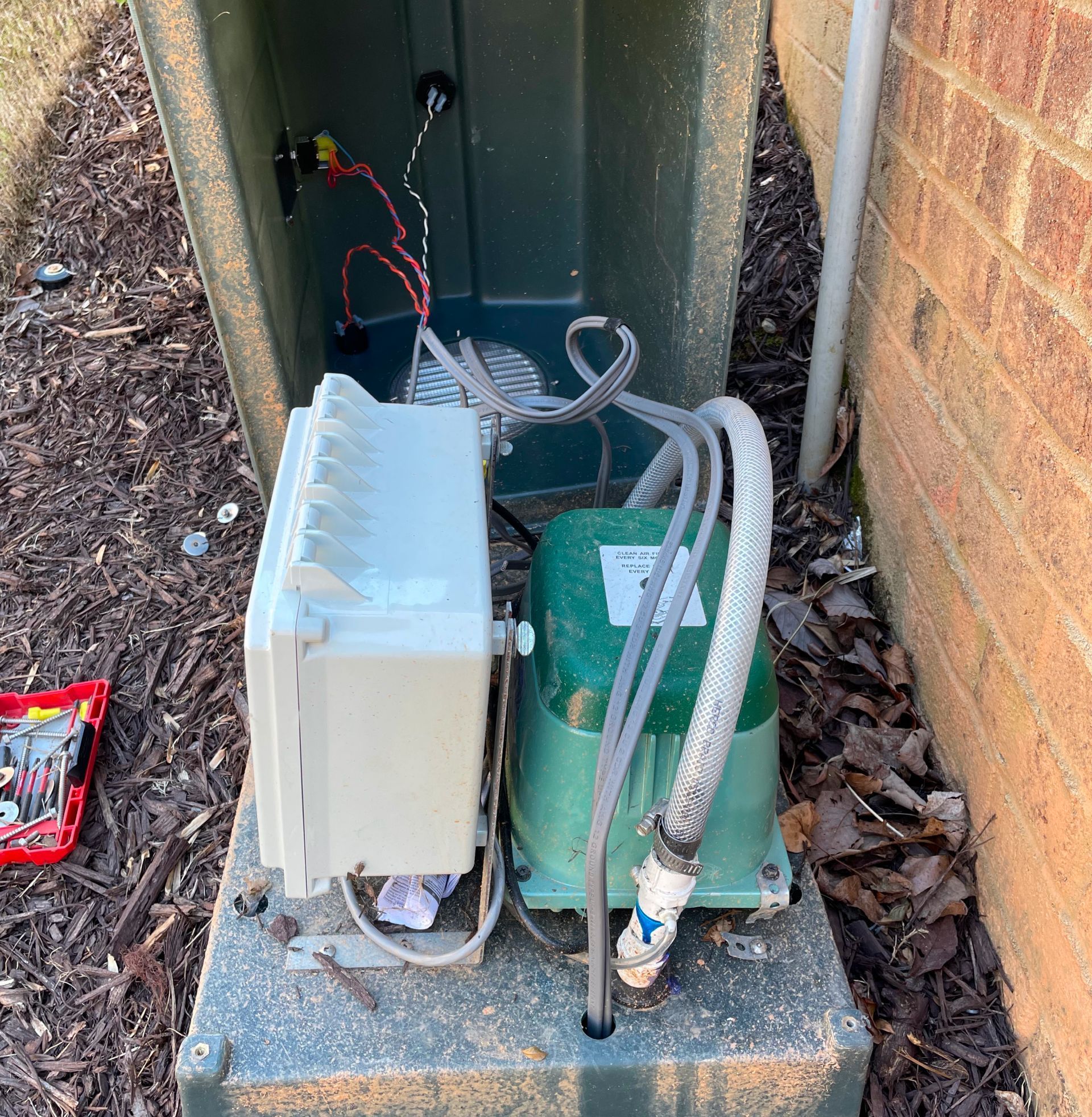
February 24, 2025
Wastewater treatment is a crucial aspect of maintaining a clean and healthy environment. For many homeowners and businesses, traditional septic systems have been the standard for managing wastewater. However, as environmental concerns grow, more people are turning to aerobic treatment units (ATUs) as an eco-friendly alternative. These advanced systems provide superior wastewater treatment while minimizing the impact on local ecosystems. Alternative Septic Management offers specialized services for ATU maintenance and repairs, helping property owners make environmentally responsible choices. How Aerobic Treatment Units Work Aerobic treatment units operate differently from conventional septic systems by incorporating oxygen into the treatment process. This oxygen supports beneficial bacteria that actively break down waste more efficiently than in anaerobic systems, which lack oxygen. Key Components of an ATU Aeration Chamber – Introduces oxygen to support aerobic bacteria, which break down organic matter. Settling Chamber – Allows solids to settle, reducing sludge buildup. Disinfection Stage (if applicable) – Some systems include additional disinfection to further purify the effluent. This multi-step process results in cleaner wastewater being discharged, reducing potential contamination and promoting a healthier environment. Why ATUs Are More Environmentally Friendly Than Traditional Septic Systems ATUs offer several advantages over traditional septic systems, making them a more sustainable choice for wastewater treatment. Better Waste Breakdown and Reduced Sludge Traditional septic systems rely on anaerobic bacteria, which are slower at breaking down organic matter. This leads to more sludge accumulation, requiring frequent pumping. ATUs, on the other hand, use aerobic bacteria that work faster and more effectively, reducing sludge buildup and extending the time between necessary maintenance. Higher Quality Effluent The effluent discharged from an ATU is much cleaner than that from a traditional system. This means: Reduced contamination of groundwater and surface water. Lower risk of spreading bacteria and viruses into nearby water sources. Improved soil absorption, preventing overloading of drain fields. With cleaner effluent, ATUs significantly reduce the risk of polluting local waterways, making them a responsible choice for environmentally conscious homeowners. Reducing Pollution With ATUs One of the most important environmental advantages of ATUs is their ability to prevent pollution. Many septic systems contribute to nutrient pollution, where excess nitrogen and phosphorus enter nearby water sources, leading to harmful algae blooms and aquatic ecosystem imbalances. Preventing Harmful Nutrient Runoff ATUs help control nutrient levels in wastewater, reducing the chances of pollution-related issues such as: Oxygen depletion in lakes and rivers (which harms fish and other wildlife). Excessive plant growth and harmful algae blooms that can make water bodies toxic. Contaminated drinking water sources that pose health risks to humans and animals. By reducing nutrient runoff, ATUs play a critical role in keeping local ecosystems healthy and thriving. Sustainable Wastewater Treatment for a Greener Future Sustainability is a key consideration for homeowners looking to reduce their environmental impact. ATUs align with this goal by offering: Efficient water use. ATUs optimize wastewater treatment, reducing strain on local water sources. Lower carbon footprint. The improved breakdown of waste means fewer emissions associated with pumping and maintenance. Longer system lifespan. When properly maintained, ATUs can last for decades, reducing the need for frequent replacements. Choosing an Eco-Friendly Septic System for Your Property For homeowners and businesses considering an environmentally responsible wastewater solution, ATUs are an excellent choice. However, selecting the right system involves a few key factors: Property size and soil conditions – The right ATU must be suitable for your specific landscape. Household size and water usage – Systems should be appropriately sized to handle wastewater volume. Local regulations and environmental considerations – Some areas have specific requirements regarding wastewater treatment. Working with a professional septic service provider can help ensure that you choose the best system for your needs. How Alternative Septic Management Supports Sustainable Wastewater Solutions Alternative Septic Management specializes in ATU installation, maintenance, and repairs, helping property owners make environmentally responsible choices. Their services ensure that ATUs operate at peak efficiency, maximizing environmental benefits. Expert Installation for Maximum Efficiency Proper installation is crucial for an ATU to function effectively. The team at Alternative Septic Management provides: Site evaluations to determine the best placement for an ATU. Professional installation to ensure compliance with local regulations. System customization to fit specific property needs. Routine Maintenance to Protect the Environment Regular maintenance is essential for an ATU to continue delivering clean and sustainable wastewater treatment. Alternative Septic Management offers: Scheduled inspections to check system performance. Aerator and pump servicing to keep bacteria levels stable. Effluent testing to ensure high water quality before discharge. By providing expert services, Alternative Septic Management helps homeowners and businesses preserve their ATU’s efficiency while protecting the environment. Maintaining Your ATU for Long-Term Environmental Benefits Proper ATU maintenance not only ensures a longer system lifespan but also helps preserve its positive environmental impact. Homeowners can take several steps to maintain their system’s efficiency: Use Septic-Safe Cleaning Products Harsh chemicals can disrupt aerobic bacteria, reducing the system’s ability to break down waste. Choose: Biodegradable cleaners instead of bleach or ammonia-based products. Eco-friendly soaps and detergents that won’t harm bacterial activity. Limit Water Waste Excessive water use can overwhelm an ATU, preventing proper treatment. Best practices include: Fixing leaks to prevent unnecessary water flow. Spreading out laundry loads to avoid overloading the system. Installing water-efficient appliances to minimize wastewater production. Schedule Regular Inspections Professional maintenance ensures that all components are functioning properly and that bacteria levels remain balanced. Homeowners should schedule ATU inspections at least once a year with a trusted service provider like Alternative Septic Management. Why ATUs Are a Smart Choice for Sustainable Living As environmental awareness grows, more homeowners are seeking sustainable septic solutions that protect their property and the surrounding ecosystem. ATUs offer: Superior wastewater treatment that reduces pollution. Long-term sustainability with lower environmental impact. Increased property value for eco-conscious buyers. Taking the Next Step Toward Sustainable Wastewater Management Choosing an ATU is a proactive step toward responsible wastewater management. With the expertise and support of Alternative Septic Management, property owners in Georgia can confidently transition to an eco-friendly septic system while ensuring optimal performance for years to come. Contact Alternative Septic Management today to learn more about ATU installation, maintenance, and inspection and how you can make a positive impact on the environment.

February 10, 2025
Aerobic treatment units (ATUs) are an essential part of advanced septic solutions, providing efficient wastewater treatment for residential and commercial properties. Unlike traditional septic systems, ATUs rely on aerobic bacteria to break down waste, ensuring cleaner effluent and reduced environmental impact. However, maintaining a healthy bacterial ecosystem within an ATU is crucial for its effectiveness. One of the most common threats to ATU health is the improper use of household chemicals. Many common household cleaning and personal care products contain harsh chemicals that can disrupt the delicate balance of beneficial bacteria in an ATU. Understanding how these chemicals affect your system and what steps you can take to protect it can help extend its lifespan and maintain its efficiency. Alternative Septic Management specializes in helping homeowners and businesses in Georgia maintain their ATUs by providing expert guidance, routine maintenance, and solutions to protect bacterial ecosystems. Their professional services ensure that your system continues to function at peak performance while minimizing environmental impact. How Household Chemicals Affect Aerobic Treatment Units The Role of Bacteria in ATUs Aerobic treatment units depend on a thriving colony of aerobic bacteria to break down organic waste efficiently. These bacteria require oxygen to function properly, and ATUs are designed to supply continuous aeration to support their activity. When household chemicals enter the system, they can disrupt this bacterial balance, leading to reduced treatment efficiency and potential system failures. Common Harmful Household Chemicals Certain chemicals are particularly harmful to ATU bacteria, including: Bleach and Disinfectants: While effective for killing germs in the home, these chemicals also kill the beneficial bacteria necessary for wastewater treatment. Drain Cleaners and Solvents: Harsh drain cleaners contain caustic substances that can kill bacteria and damage system components. Antibacterial Soaps and Detergents: These products are designed to eliminate bacteria, which can weaken the microbial balance in an ATU. Medications and Personal Care Products: Flushing medications, particularly antibiotics, can severely disrupt bacterial populations within the system. Harsh Laundry Detergents and Fabric Softeners: Some detergents contain phosphates and chemicals that can be toxic to ATU bacteria. Signs of Chemical Damage in Your ATU When an ATU is exposed to harmful household chemicals over time, several warning signs may indicate a bacterial imbalance or system inefficiency. Recognizing these signs early can help prevent costly repairs and potential system failure. Foul Odors A properly functioning ATU should not produce strong, unpleasant odors. If you notice a persistent sewage smell near your drain field or around the system, it could indicate that bacteria are struggling to break down waste efficiently. Slow or Failing Wastewater Treatment If your drains are slower than usual or wastewater is not processing correctly, it may be due to bacterial die-off caused by chemical exposure. A lack of active bacteria means that waste is not being properly treated before being discharged. Increased Sludge Buildup and Clogging A loss of bacterial efficiency can lead to excessive sludge buildup in the ATU. This can cause clogging in the system, leading to backups, overflow, or even mechanical failures. System Alarms or Mechanical Issues Many ATUs are equipped with alarms that alert homeowners to operational issues. If your system’s alarm is triggered, it is essential to investigate the cause, as it may be linked to chemical contamination. Safe Alternatives: Protecting Your ATU From Chemicals To maintain a healthy ATU and ensure the longevity of your system, it is crucial to use septic-safe products and adopt responsible household habits. Choosing Safe Cleaners for Septic Systems Opting for natural or biodegradable cleaning products can help preserve the bacterial balance within your ATU. Consider using: Vinegar and Baking Soda: A natural alternative for cleaning surfaces and unclogging drains without harming bacteria. Plant-Based and Biodegradable Cleaning Products: Many eco-friendly cleaners are designed to be non-toxic to septic systems. Enzyme-Based Drain Cleaners: These products use natural enzymes to break down organic matter without killing beneficial bacteria. Responsible Chemical Disposal Instead of flushing harmful chemicals down the drain, dispose of them properly: Take unused medications to designated take-back programs instead of flushing them. Dispose of paint thinners, solvents, and other toxic chemicals at hazardous waste collection sites. Use minimal amounts of bleach and disinfectants, and opt for ATU-safe alternatives. Best Practices for Preserving ATU Health Along with avoiding harmful chemicals, implementing regular maintenance and best practices can help optimize ATU performance. Routine System Maintenance Regular inspections and maintenance are essential for keeping an ATU in optimal working condition. Professional service providers, such as Alternative Septic Management, offer expert inspections to ensure all system components function correctly and that bacterial levels remain balanced. Spacing Out Laundry Loads Excessive detergent use and high water volume can strain an ATU. Doing multiple loads of laundry in one day can overload the system, diluting bacterial levels and reducing treatment efficiency. Spreading laundry loads throughout the week can help maintain balance. Using ATU-Friendly Products Choose liquid detergents over powdered ones, as powder detergents can contain fillers that clog system components. Look for labels that indicate a product is septic-safe or biodegradable. Alternative Septic Management: Your Partner in ATU Maintenance Alternative Septic Management specializes in the maintenance and care of aerobic treatment units in Georgia. Their team understands the unique needs of ATUs and provides expert services to keep your system running smoothly. From routine inspections to system troubleshooting, their professionals help homeowners prevent issues caused by household chemicals and other common septic challenges. Why Choose Alternative Septic Management? Expert Knowledge: Their team is highly trained in aerobic treatment systems and bacterial balance. Regular Maintenance Plans: They offer scheduled service plans to keep your ATU operating efficiently. Eco-Friendly Solutions: Alternative Septic Management helps homeowners choose safe and effective products for their systems. Taking proactive steps to protect your ATU from harmful household chemicals can save you money and extend the life of your system. If you need professional guidance or septic services such as a septic system inspection or alternative septic system maintenance, Alternative Septic Management is here to help. Contact their team today to schedule an inspection and ensure your ATU remains in top condition.
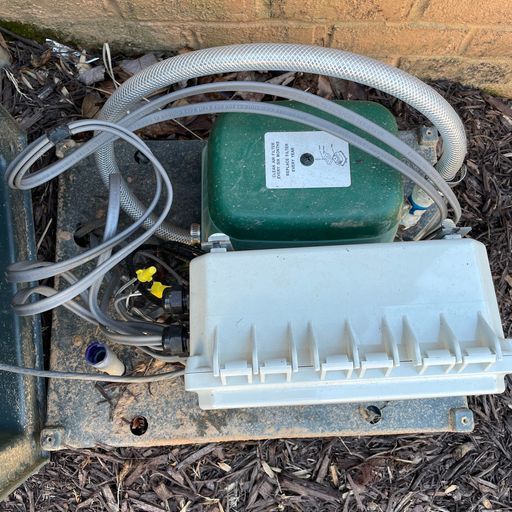
January 27, 2025
Aerobic treatment units (ATUs) are an advanced septic solution designed to treat wastewater more efficiently than traditional systems. At the heart of an ATU's functionality is its reliance on bacteria. These microorganisms are essential for breaking down waste, ensuring the system operates effectively, and protecting the environment. Alternative Septic Management specializes in maintaining and optimizing ATUs, ensuring that the bacteria within these systems thrive and perform at their best. In this blog, we’ll explore the vital role of bacteria in aerobic treatment units, how they work, and how to optimize their performance for long-term success. How Aerobic Treatment Units Work Unlike conventional septic systems that rely on anaerobic (oxygen-free) processes, aerobic treatment units use oxygen to support bacteria that decompose organic matter in wastewater. These bacteria thrive in oxygen-rich environments and are more efficient at breaking down waste, reducing odors, and producing cleaner effluent. An ATU typically includes the following components: Pretreatment tank: This is where solids settle, and initial separation occurs. Aeration chamber: Oxygen is introduced here, creating an ideal environment for aerobic bacteria to thrive and break down waste. Clarification chamber: This stage allows any remaining solids to settle before the treated water is discharged. Disinfection (optional): Some systems include a final disinfection step to further purify the effluent. Each stage depends on the activity of aerobic bacteria to ensure efficient treatment. Without these microorganisms, the system cannot function properly. The Role of Aerobic Treatment Bacteria Aerobic bacteria are the workhorses of ATUs. These microorganisms feed on organic waste, breaking it down into simpler compounds. This process not only reduces the volume of waste but also minimizes harmful pathogens and pollutants, resulting in cleaner water being released back into the environment. Key benefits of aerobic treatment bacteria include: Efficient waste breakdown : Aerobic bacteria are highly effective at decomposing organic matter, reducing sludge buildup and improving system efficiency. Odor reduction : By breaking down waste more thoroughly, these bacteria help minimize unpleasant odors often associated with septic systems. Environmental protection : Treated effluent from ATUs is cleaner, reducing the risk of groundwater contamination. Factors Affecting Bacteria Performance To maintain an efficient ATU, it’s essential to create an environment where aerobic bacteria can thrive. Several factors can influence their performance: Oxygen levels : Aerobic bacteria require a steady supply of oxygen. A malfunctioning aerator or clogged diffuser can reduce oxygen levels, hindering bacterial activity. pH balance : The bacteria in ATUs thrive in a neutral pH range (6.5 to 7.5). Extreme acidity or alkalinity can harm these microorganisms. Temperature : While bacteria can adapt to various temperatures, extreme cold can slow their activity, and excessive heat can kill them. Chemical exposure : Harsh household chemicals, such as bleach, pesticides, and non-biodegradable cleaners, can disrupt the bacterial population, compromising the system’s efficiency. Optimizing ATU Bacteria for Peak Performance Ensuring your aerobic treatment unit functions at its best requires regular maintenance and a proactive approach to supporting bacterial health. Here are some practical steps: Schedule Regular Maintenance Partner with professionals like Alternative Septic Management to perform routine inspections and servicing. Regular check-ups ensure that components like aerators and diffusers are functioning correctly, maintaining optimal oxygen levels for bacteria. Use Septic-Safe Products Opt for biodegradable and septic-safe household cleaners to prevent chemical disruptions to the bacterial ecosystem. Avoid pouring grease, oil, or non-degradable items down drains. Monitor Oxygen Levels Ensure the aeration system is working efficiently. If you notice reduced airflow or system alarms, contact a professional immediately to address the issue. Maintain a Balanced pH Be mindful of what enters your system. Excessive use of acidic or alkaline products can disrupt the pH balance, affecting bacterial performance. Protect Against Overloading Avoid overloading the system with excessive water or waste. Spread out laundry loads and fix leaks promptly to maintain a steady flow of wastewater. Signs of Bacterial Imbalance Recognizing the signs of bacterial imbalance in your ATU can help you address issues before they escalate. Common indicators include: Foul odors : Persistent smells near the system may indicate bacterial activity has been disrupted. Slow drainage : If household drains are backing up or emptying slowly, it could signal a problem within the ATU. Alarms or alerts : Many ATUs are equipped with alarms to notify you of mechanical or bacterial issues. Never ignore these warnings. Cloudy effluent : Clear effluent is a sign of effective treatment. Cloudy or murky discharge may indicate bacterial imbalance or system malfunction. Why Choose Alternative Septic Management? Maintaining the health of your aerobic treatment unit’s bacteria is essential for optimal performance. Alternative Septic Management specializes in providing professional maintenance and support for ATUs in Georgia. Their team of experts understands the unique needs of these systems and offers tailored solutions to keep them running smoothly. With their help, you can: Ensure proper aeration and bacterial health Prevent costly repairs through proactive maintenance Extend the lifespan of your ATU Protect your property and the environment Conclusion Aerobic treatment bacteria play a critical role in the success of your ATU, breaking down waste, reducing odors, and protecting the environment. By understanding their importance and taking steps to optimize their performance, you can ensure your system operates efficiently for years to come. For expert care and maintenance of your aerobic treatment unit, trust Alternative Septic Management. Their knowledgeable team is dedicated to providing top-notch service and support, helping you get the most out of your septic solution. Contact them today or visit their website to schedule an inspection and keep your ATU in peak condition .
Alternative Septic Services For Residential And Commercial Systems Requiring Alternative Septic Systems.
Quick Links
Our Services
Septic Installation
Septic Repair
Septic Inspection
Air Compressor Maintenance
Pump Maintenance
Get In Touch
Mobile: 404-788-3474
Email: asmseptic@gmail.com
Address: 3295 Fannie Thompson Rd. Monroe GA 30656
Copyright 2025 © All Rights Reserved. Alternative Septic Management, Inc.

